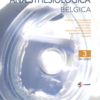Anaesthaesia for Category-1 urgency Ceasarean section
Caesarean section, anaesthesia, category 1, decision-to-delivery interval, emergency caesarean section
Published online: Sep 20 2023
Abstract
Caesarean section is the most performed surgical intervention worldwide. A proportion of these caesarean deliveries will necessitate emergency care for maternal and fetal compromise. Anaes-thetic management in these situations can be challenging and a short decision to delivery interval is burning. Current evidence suggests that multidisciplinary communication is essential to support anaesthetic management and optimise team performance. Communication should be supported by using a standardised classification of urgency tool. The four-grade classification scale has increasingly been adopted internationally. While neuraxial techniques are favoured for caesarean sections, gen-eral anaesthesia has an essential role in category 1 caesarean section (defined as a caesarean sec-tion in which there is an immediate threat to life for the mother or fetus). The risks and benefits of general and neuraxial anaesthesia for the woman and her baby must be carefully weighed on an individual base. Beyond the delivery of anaesthesia, other practical strategies, such as multidiscipli-nary team training, can contribute to improved maternal and neonatal outcomes.
